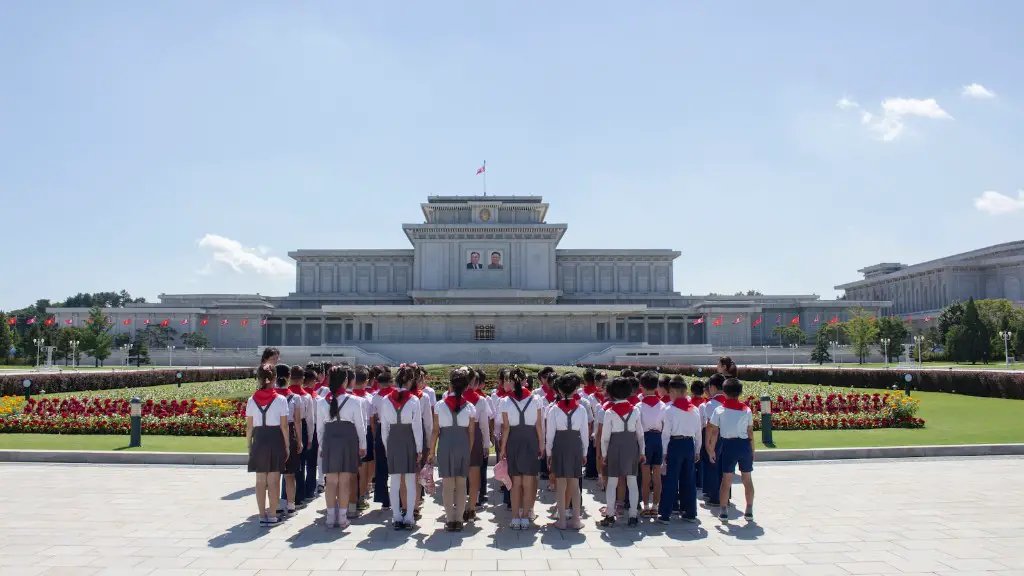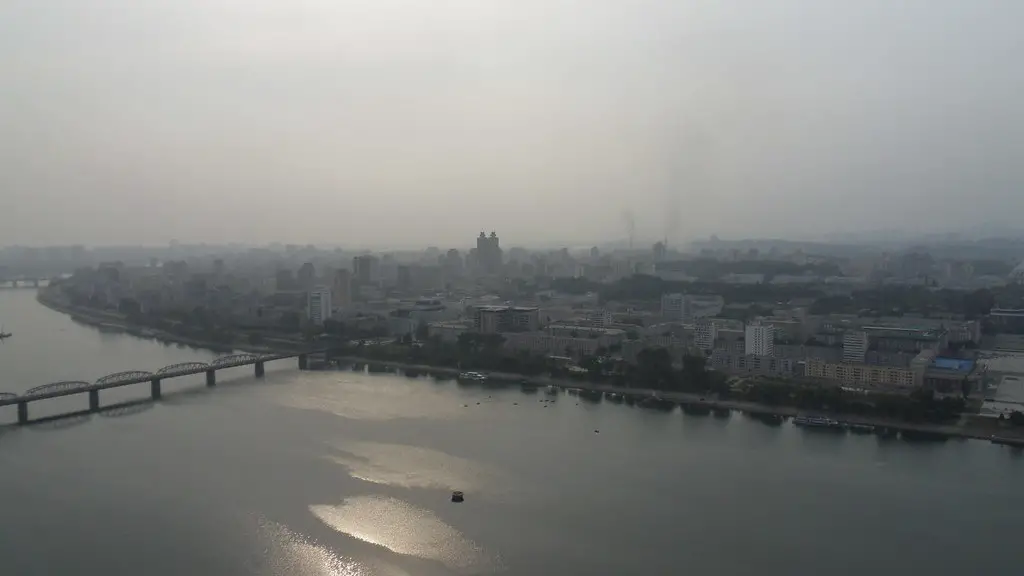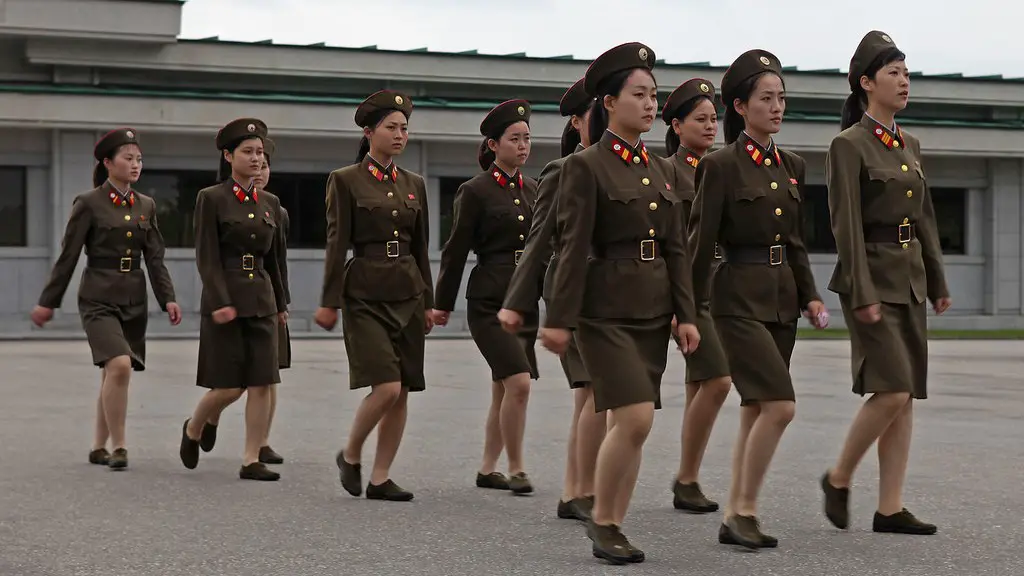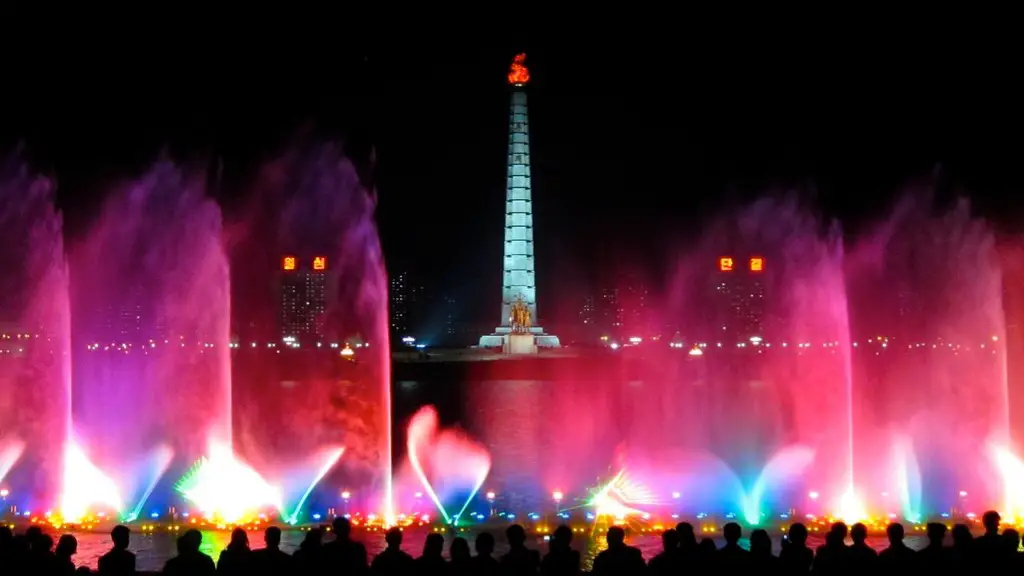Nuclear weapons remain a highly controversial issue to this day. Both the United States and North Korea have their own stocks of nuclear weapons, although the nature and magnitude of the arsenals differ significantly. Who has more nuclear weapons and what are their capabilities?
Nuclear weapons in the United States can be deployed in various forms. The United States has an estimated 6,185 nuclear warheads in active stockpiles, with roughly 2,800 of them being deployed. Approximately 1,750 are held in reserve, while the remaining 1,650 have been retired. The arsenal includes air-launched cruise missiles, strategic nuclear missiles, and tactical warheads for short-range missiles. The United States also has a vast arsenal of nuclear delivery vehicles which include aircraft, submarines, and intercontinental ballistic missiles (ICBMs).
In comparison, North Korea has an estimated 10 to 20 nuclear weapons in its arsenal. Its nuclear delivery vehicles consist mainly of ballistic missiles with intercontinental, intermediate, medium, long-range, and short-range capabilities. It is estimated that these missiles can reach targets 1,100 km away and up to 3,700 km for the long-range missiles. North Korea is also believed to possess tactical nuclear weapons for cruise rockets and other delivery systems.
In terms of nuclear capabilities and stockpiles, there is no doubt that the United States has much more firepower than North Korea. Despite the United Nations Security Council imposing numerous sanctions on North Korea, it hasn’t been able to stop the nation from developing its nuclear capabilities. This has led to a great deal of tension between North Korea and its enemies, namely South Korea and the United States.
For decades now, the United States has been at the forefront of nuclear disarmament and non-proliferation. It has actively led the efforts to discourage other countries from developing these weapons and has taken part in numerous disarmament treaties. On the other hand, North Korea is one of the few countries that have chosen to stay away from any international treaty or agreement related to nuclear disarmament.
Experts believe that the amount of nuclear weapons in the US arsenal is more than enough to deter any potential aggressor. Although the US might not possess as many weapons as it once did during the Cold War, its nuclear capabilities are still something to be taken seriously. Furthermore, the US arsenal is capable of targeting a broad range of targets, making it even more effective.
Geographical Location
Geographically, North Korea lies in a relatively precarious situation. Its neighbors, South Korea and Japan, are two of the most populous countries in the world and have strong military capabilities. This makes North Korea more vulnerable to a potential attack, as any attack on its territory could easily be detected and countered.
In contrast, the United States is situated in a much more strategic position. It is far away from most potential adversaries and it also has a large and powerful military that is capable of responding swiftly. This gives the US an immense advantage when it comes to nuclear deterrence.
Recent events have shown that North Korea may not be as vulnerable as it appears. Despite having a relatively small nuclear arsenal, North Korea has been willing to conduct tests in an effort to advance its nuclear capabilities. This has led many to speculate that North Korea may be willing to deploy its nuclear weapons in the event of a crisis.
Furthermore, North Korea has no qualms about flaunting the power of its military and nuclear arsenal. It has conducted numerous belligerent authoritarian acts directed towards South Korea, Japan, and the United States. This display of aggression has led to an increased level of international concern over the militarization of North Korea.
International Relations
When it comes to international relations, both the United States and North Korea have their own respective stances. The United States is mostly seen as a leader in international relations, particularly when it comes to nuclear disarmament and non-proliferation. It has actively taken part in disarmament treaties with Russia, and other nuclear-capable countries, and is a staunch supporter of most international non-proliferation efforts.
On the other hand, North Korea has an abrasive approach towards international relations, often relying on belligerence and displays of military power to get its way. This aggressive behavior is likely to only worsen with the advent of the Pyongyang regime and its animosity towards the United States.
Despite the differences in stances towards international relations, both the United States and North Korea share a common concern in maintaining their nuclear capabilities. Both countries are fiercely protective of their nuclear arsenals and have taken steps to ensure their weapons remain powerful.
The United States has invested heavily in modernizing its nuclear arsenal, while North Korea has conducted numerous tests in an effort to advance its capabilities. This competition has led to a great deal of tension between the two countries, with neither side willing to back down.
Current Threats
The number of nuclear weapons in circulation remains an ever-present threat to international security. Any kind of nuclear exchange, whether intentional or accidental, could prove catastrophic for the region, or even the world. This is why an effective nuclear non-proliferation policy is essential for preserving the peace and stability of the world.
Despite having vastly different arsenals, both the United States and North Korea pose a great threat to the international community. Once thought of as a way to deter adversaries, nuclear weapons have become increasingly seen as a tool that can be used to inflict great damage to an enemy. As a result, the danger of these weapons should not be taken lightly.
The United States and North Korea have been in a state of heightened tensions for some time now, but there is a potential for relations to improve. However, the number of nuclear weapons in these countries, as well as their potential capabilities, should never be underestimated.
International Cooperation
In recent years, the United States has been working more closely with North Korea in an effort to improve their relations. The United States has also joined forces with China and Russia in an effort to persuade North Korea to abandon its nuclear ambitions and move towards a more peaceful relationship.
The United Nations has also played a significant role in this regard, as it has imposed various sanctions on North Korea in an effort to demonstrate to Pyongyang that its belligerent behavior is unacceptable. So far, the sanctions have not been enough to deter North Korea from developing its weapons and advancing its nuclear capabilities.
International cooperation can play an important role in curbing the proliferation of nuclear weapons, particularly in cases such as North Korea. However, it is important to remember that the United States and other countries must maintain a firm stance when it comes to curbing the proliferation of nuclear weapons.
At the same time, the United States and North Korea should strive to move towards a shared vision of peace and security. Aims and objectives should be clearly communicated to ensure that all parties can move forward in a positive direction.
Conclusion
In conclusion, it is undeniable that the United States and North Korea possess vastly different nuclear weapons arsenals. The United States possesses a much larger stockpile of weapons, but both countries present a great risk of nuclear armament, and both are likely to remain committed to their own respective nuclear programs.
International sanctions and cooperation are necessary for curbing the proliferation of nuclear weapons and must be an integral part of any long-term solution. In the meantime, all countries must continue to remain vigilant, and strive to move towards a shared vision of peace and security.





